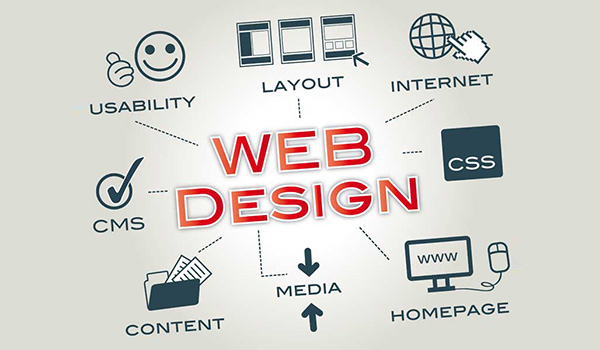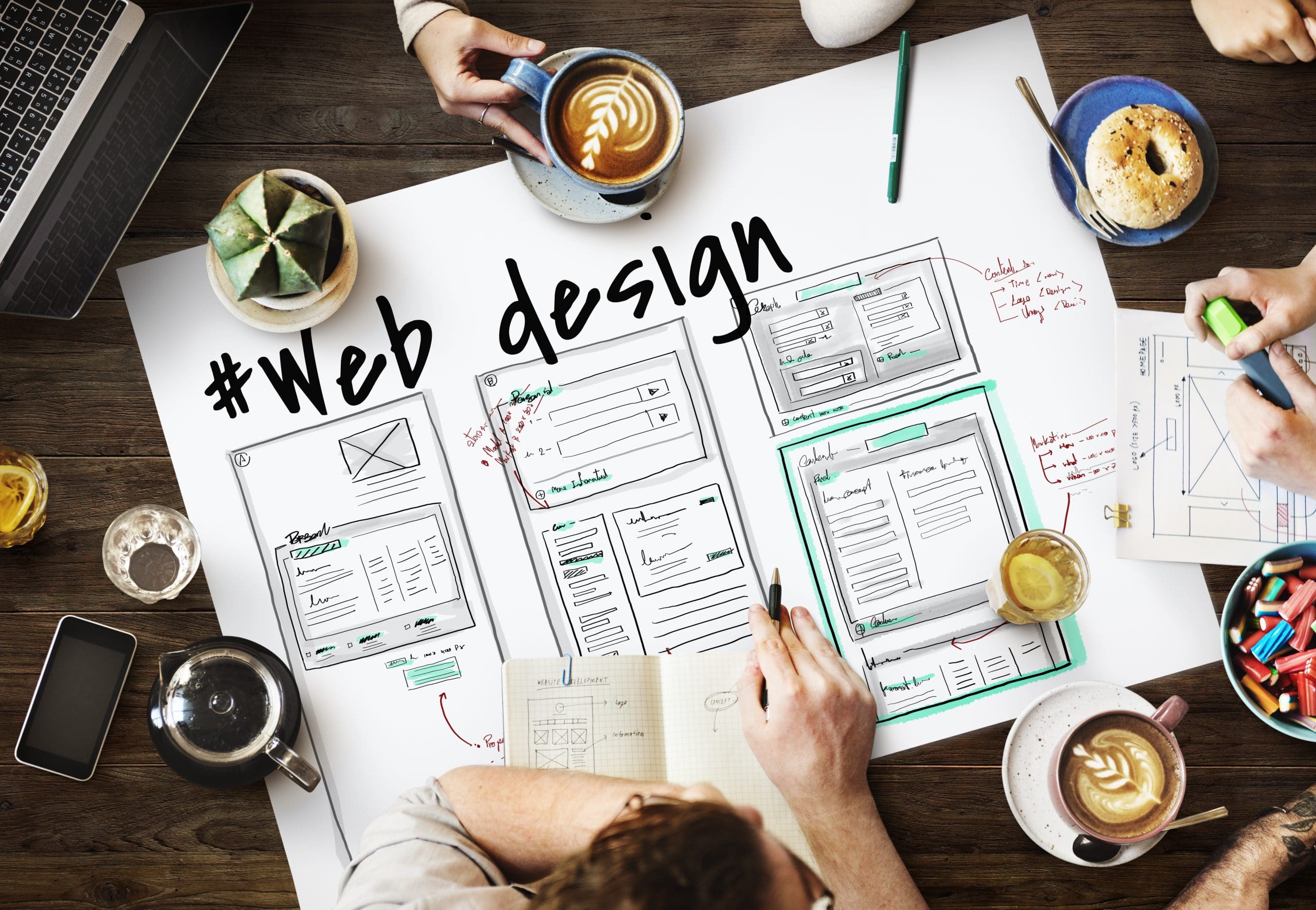Aligned Position Web Design: Tailor-Made Web Design Solutions for Maximum User Engagement
Aligned Position Web Design: Tailor-Made Web Design Solutions for Maximum User Engagement
Blog Article
The Best Kinds Of Web Design to Improve User Experience and Interaction
In the ever-evolving landscape of electronic interaction, the performance of website design considerably influences individual experience and engagement. Different layout techniques, such as minimal, responsive, and interactive designs, each deal special benefits that can deal with diverse individual needs. Comprehending which types of website design ideal serve these objectives can be critical for businesses aiming to improve consumer contentment and retention. Nevertheless, the inquiry remains: which style components absolutely reverberate with users and foster significant interaction? The exploration of these concepts reveals important understandings that might redefine your strategy to Web style.
Minimalist Website Design
As digital landscapes become increasingly messy, minimalist Web layout has actually arised as an effective strategy to boosting customer experience. This style approach prioritizes simplicity, concentrating on crucial components while getting rid of unnecessary diversions. By making use of enough white room, simple navigation, and a limited shade palette, minimalist layout cultivates clearness and directs customer focus to vital material.
The core concept of minimalist Web layout is to develop a smooth interaction for customers. By lowering cognitive lots, users can promptly understand details without really feeling bewildered. This direct approach not only improves use yet also encourages involvement, as visitors are much more most likely to check out a site that is aesthetically appealing and easy to navigate.
Furthermore, minimal style often emphasizes typography and images, utilizing these elements tactically to communicate messages effectively. This focus on vital components can improve brand name identification and create an unforgettable user experience. In essence, minimalist website design is not simply a fad; it is a thoughtful technique that recognizes the value of user-centered style. By stripping away supplementary elements, developers can create an extra appealing, effective, and satisfying Web experience for all customers.
Receptive Website Design
In today's varied digital setting, receptive Web layout has actually come to be crucial for developing a smooth individual experience across a wide variety of gadgets. As customers gain access to internet sites on smart devices, laptop computers, desktops, and tablet computers, the capability of an internet site to adapt its format and content to different screen sizes and resolutions is vital.
Receptive website design utilizes flexible grids, photos, and CSS media inquiries to make sure that Web content is provided ideally, no matter the device made use of. This technique not only enhances the visual charm of a web site yet also dramatically improves use. Individuals are more likely to engage with a website that provides a consistent experience, as it removes the aggravation of having to focus or scroll excessively.
By embracing receptive design, organizations can boost their exposure and get to a broader target market. In recap, responsive Web style is an essential technique that enhances user experience, interaction, and total complete satisfaction.
Interactive Website Design
Responsive website design lays the groundwork for enhancing customer experience, but interactive website design takes this an action additionally by engaging individuals in a much more dynamic method - Aligned Position Web Design. By including aspects such as animations, clickable prototypes, and real-time feedback, interactive website design mesmerizes customers, drawing them right into a richer browsing experience
This method not just fosters involvement however also encourages individuals to check out content proactively instead than passively eating it. Strategies such as gamification, where users gain incentives for finishing tasks, can substantially boost the moment spent on a site and boost general contentment. In addition, interactive functions can simplify intricate details, making it extra digestible and pleasurable.

Integrating interactive layout aspects can additionally lead to higher conversion prices, as customers are most likely to engage with a site that proactively involves them. Aligned Position Web Design. Ultimately, interactive website design transforms customer experiences into unforgettable trips, making sure that visitors return time after time
Apartment Design
Identified by its minimalistic approach, flat design try these out highlights simpleness and performance, removing unneeded elements and focusing on important functions. This layout viewpoint focuses on functionality, making certain that individuals can navigate interfaces effortlessly and efficiency. By employing a clean visual, level style eliminates the clutter usually located in more ornate designs, thus boosting individual focus on content and functionality.
The characteristic of flat layout exists in its use of vibrant colors, simple typography, and geometric forms. These elements contribute to a visually appealing interface that is both friendly and modern. In addition, level design promotes a sense of quality, enabling individuals to recognize necessary actions and info without interruption.
Additionally, level layout is particularly reliable in responsive Web layout, as its simplicity equates well across various tools and display dimensions. By concentrating on important functions, level design not only meets user demands but likewise urges seamless interaction, making it a vital part of efficient Web layout techniques.
Flexible Website Design
Adaptive website design customizes the user experience by creating numerous dealt with formats tailored to various display sizes and devices. Unlike receptive design, which fluidly readjusts a solitary design, flexible layout utilizes distinct formats for particular breakpoints, guaranteeing optimum discussion on various platforms. This method permits designers to concentrate on the distinct qualities of each tool, enhancing usability by delivering precisely what individuals need based upon their context.
One of the key benefits of adaptive website design is its capability to maximize load times and performance. By serving customized web content and pictures that fit the individual's device, web sites can lessen data usage and improve loading speeds. This is especially advantageous for users with slower connections or limited information plans.

In addition, adaptive style facilitates a more controlled and regular branding experience. description Since developers produce numerous formats, they can ensure that the visual aspects straighten with the brand name's identity across different platforms - Aligned Position Web Design. This causes official source a cohesive customer experience, improving engagement and advertising individual retention
Verdict
In verdict, the assimilation of minimal, responsive, and interactive website design concepts considerably enhances customer experience and involvement. Minimalist design fosters clearness and emphasis, while receptive style makes certain adaptability across different gadgets, advertising availability. Interactive layout captivates individuals via vibrant elements, urging exploration and personalization. Jointly, these layout approaches add to the production of straightforward environments that not only enhance satisfaction but likewise drive higher conversion prices, underscoring their critical relevance in modern website design strategies.

Minimalist style promotes clarity and focus, while responsive style makes sure flexibility throughout numerous devices, advertising availability. Jointly, these design approaches add to the creation of user-friendly atmospheres that not only boost fulfillment however additionally drive higher conversion rates, highlighting their crucial value in modern Web design approaches.
Report this page